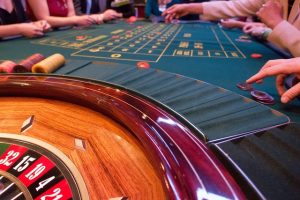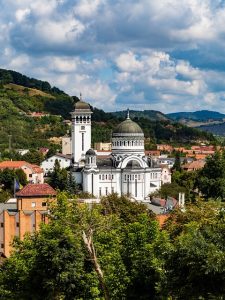日本最古の温泉でのハプニング!入浴前の外国人その意外なトラブルとは?(返金、格安のコインロッカーって何?)
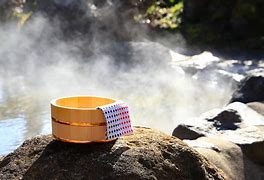
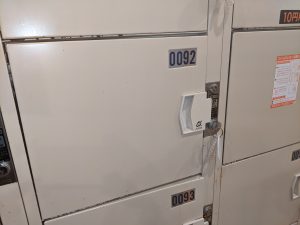
日本最古の温泉(四国 道後温泉)でのハプニング
入浴前の外国人その意外なトラブルとは?
(返金、格安の10円コインロッカーって何?)
先日、地元の「日本最古の温泉」に休養&リラックスために
久しぶりに出かけました。
いつもは午後から行くのですが、前日に家の片付け等の作業をして
身体の腰、肩が痛かったので 朝の人の少ない時間帯を
狙っていきました。
狙いは、午前10時から正午過ぎまで。(笑)
経験上この時間帯と午後2時~4時位が入浴客の少ない時間帯です。
私は、何度も温泉に入りゆっくり入浴して、全身をリラックスして
上がりました。
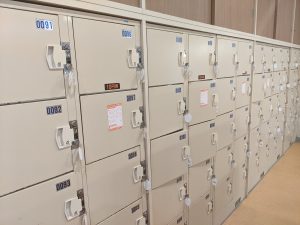 コインロッカー
コインロッカー
そして、着替えをしていると少し離れたロッカー棚の奥から、
若い日本人と外国人の会話が聞こえました。
「何か、説明している様です」が、うまく伝わらない感じで
しばらく話し合っていました。
時々「リファウンド?refound?」(再発見?)と聞こえました。
私は、「古い温泉なので日本の伝統文化の魅力を見つけたのかな?」と
勝手に思いました。
しかし、その後、よく聞くと「リファンドrefund」(払い戻し)
とも聞こえました。
私は二人の英語の発音が分かりにくく「何をいっているのか?」
正確に理解できませんでした。
二人は暫く「まだ、なにか?」について話していました。
私は、湯上りで、体を冷やした後、ゆっくりと着替えをしていました。
すると、若い男の子が、急いでやってきて「すいませ~ん、どなたか
五円玉を10円玉に交換してくれませんか?」と
周囲の入浴客に聞き始めました。
掌に5円玉2枚握りしめていました。
私は、幸い10円玉を複数もっていたので、
私が「もっています。交換できますよ」と言うと彼は「ほっ」と
安心した表情になり、近づいてきました。
私は、財布から、10円玉を2枚取り出し「貴方の五円玉いりません。
外国人と貴方へのドネーション(寄付)です。」と
言って、10円硬貨2枚を渡しました。
彼は、少し驚き、笑いながら「寄付ですか~、ありがとうございました。」
と言って外国人の方に向かいました。
外国人の友人もその光景をみながら、笑って「サンキュー」と
言って、お風呂場に向かいました。
この騒動で、私は先ほどの会話の内容が理解できました。
彼らは、貸ロッカーを使うために、「10円硬貨を
探していたけど、たまたま、もっていなかった。
どこかに交換機がある」と思って探していた。
しかし、「100円硬貨を10円硬貨にする両替機はあったけど、
5円玉を10円に交換する両替機は見つからなかった。」
と言うことがわかりました。
「世の中いろいろあるな~」と改めて思いました。
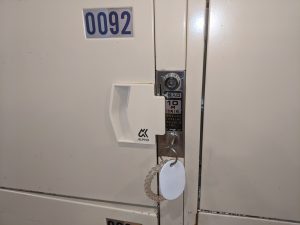 コインロッカー
コインロッカー
この貸コインロッカーを基本無料です。
しかし、使用する時は、服をいれて鍵を閉める際に
10円硬貨が必要で、キーを抜くとロックがかかります。
そして、反対に服を取り出すときは、キーを回して
扉が開くと10円玉が却ってくる仕様でした。
ここには、コインロッカーが2種類ありました。
ですから、確かに初めて使う人には「ファウンド」(再発見)と
「リファンド」(払い戻し)ですね。(笑)
余談ですが、私は入浴するときは、盗難が怖いので、ほぼ手ぶら状態で
最小限のお金しか持っていきません。
このため、本当はエチケット違反ですが、いつもロックはしていません。
従って、10円硬貨は不要でした。(有事に備えて持ってはいきますが)汗
最後に、もう一言、新しい春を迎えますが、昨年見た「燕カップル」は
まだ帰ってきません。
早く元気な鳴き声が聞きたいのですが~、寂しい思いが募ります。
早く帰って来いよ~!
続く!


Happening at Japan’s Oldest Hot Spring (Sikoku Dogo)!
What’s the surprising trouble for foreign visitors before bathing?
(What are refundable, low-cost 10\ coin lockers?)
The other day, to rest and relax,
I went out to the local “oldest hot spring in Japan.”
for the first time in a while.
I usually go in the afternoon,
but since I had been doing chores like tidying up the house
the day before and
my body was sore in the waist and shoulders,
I aimed for the time with fewer people in the morning.
My target was from 10 a.m. to just past noon. (Laughs)
From experience, this time frame and around 2 to 4 p.m.
are the times with fewer bathers.
I bathed many times in the hot spring, relaxed my whole body,
and then got out.
 coin lockers
coin lockers
While changing clothes, I heard a conversation between
a young Japanese person and
a foreigner from a locker shelfs a little away.
It seemed like they were explaining something,
but it didn’t quite come across smoothly,
so they talked for a while.
Sometimes I heard “リファウンド? refound?” (Rediscovery?)
I thought to myself,
“Maybe they’ve discovered the charm of
Japanese traditional culture because it’s an old hot spring?”
However, after listening carefully,
I also heard “リファンド refund” (refund).
Their English pronunciation was hard to understand,
and I couldn’t quite grasp what they were saying.
The two of them talked for a while about
“まだ、なにか?” (Still something?).
I finished bathing, cooled off my body,
and changed clothes slowly.
Then, a young boy hurried over and
started asking the surrounding bathers, “
Excuse me, does anyone want to exchange two 5-yen coins for
a 10-yen coin?”
He had two 5-yen coins clenched in his palm.
Luckily, I had several 10-yen coins, so when I said, “I have some.
I can exchange them for you,”
he looked relieved and approached me.
I took out two 10-yen coins from my wallet and said,
“I don’t need your five-yen coins.
Consider it a donation to you and the foreigner,”
and handed him the two 10-yen coins.
He seemed a little surprised, laughed, and said,
“A donation? Thank you very much,” then turned to the foreigner.
The foreigner’s friend also laughed while watching the scene and
said, “Thank you,” then headed towards the baths.
During this commotion,
I understood the content of the earlier conversation.
They were looking for a place to exchange their five-yen coins for
10-yen coins to use the rental lockers.
However, while there was a machine to exchange 100-yen coins for
10-yen coins,
they couldn’t find one to exchange 5-yen coins for 10-yen coins.
“Life has all sorts of things,” I thought again.
 coin lockers
coin lockers
These rental coin lockers are basically free to use.
However, when you use them,
you need a 10-yen coin to close the lock after putting in your clothes.
When you pull out the key, it locks.
And conversely, when you take out your clothes and turn the key,
the door opens, and a 10-yen coin returns.
There were two types of coin lockers here.
So, for someone using it for the first time,
it’s indeed both a “refound” and a “refund.” (Laughs)
As a side note, I’m always afraid of theft when bathing,
so I usually go with minimal money, almost empty-handed.
Therefore, it’s technically against etiquette,
but I usually don’t lock it.
Therefore, the 10-yen coin was unnecessary.
(Though I do bring it just in case.) Sweat
Lastly, as we welcome the new spring,
the “swallow couple” I saw last year hasn’t returned yet.
I really want to hear their cheerful chirping soon,
but I’m starting to feel lonely.
Come back soon!
To be continued!
